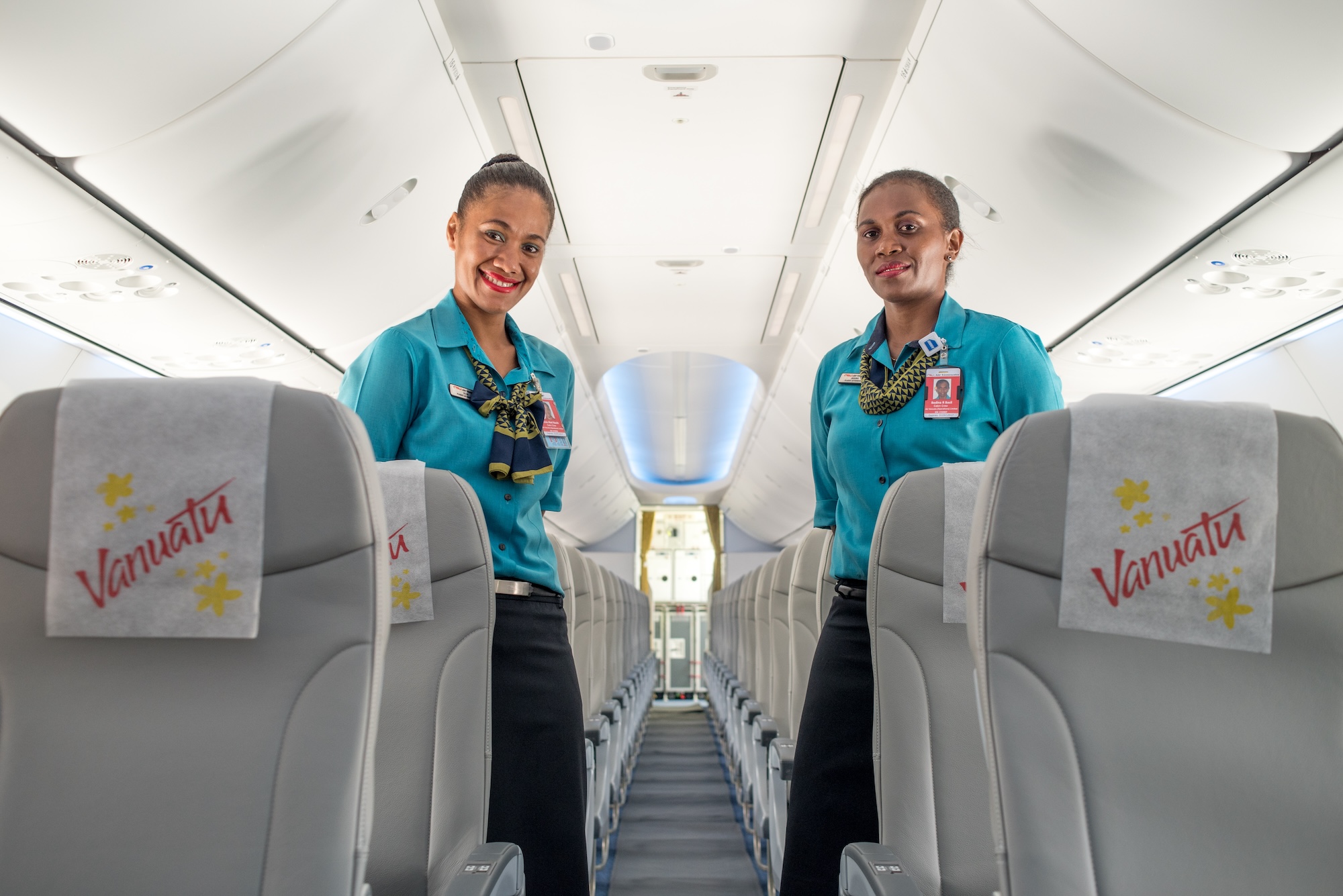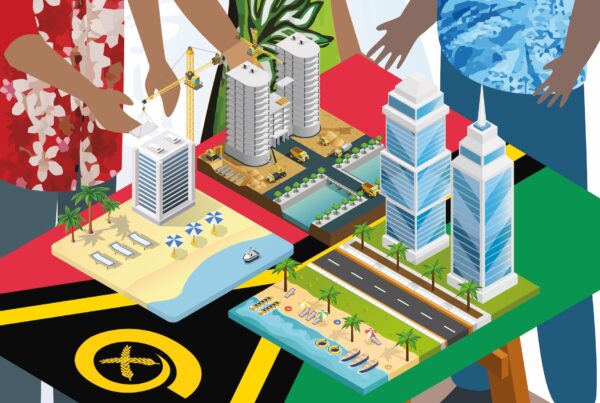By Martin St-Hilaire
While we certainly must protect our national workforce from foreign competition and wage depression, this doesn’t mean we should close our doors to foreign visitors who do not tick the “holiday/vacation” box on the immigration form upon their arrival.

Every sovereign nation establishes its own border policy. Vanuatu grants an automatic tourism visa upon arrival to foreign nationals from many countries, a key to attracting foreign tourists. The same thinking should extend to business people; welcoming people that play a key role in developing the wealth of the nation is just good business.
Below are three categories of foreign visitors we can attract by making minor changes to the immigration rules, so their experience is as welcoming and hassle-free as possible. None, it should be noted, is a threat to our local workforce and all make a net positive contribution to our economy.
1) Short-term business travellers need a business visa upon arrival
The first category consists of short-term business travellers who come to meet partners, make a sale or a purchase, act as short term consultants (less than a month), speak at a conference, perform at a concert, repair specialised equipment, conduct an audit procedure, explore potential investments, or engage in any one of a countless number of other professional tasks that are limited in scope and not tied to a local employment contract.
Facilitating the movement of these people is key to fostering international trade, which is why most countries provide them with business visas upon arrival, with no burdensome entry process. In Vanuatu, however, they are subjected to a lengthy process involving a visa application and a work permit exemption.
We must do away with the current process and provide these travellers with an automatic, 30 -day business visa upon arrival. They will be prohibited from taking up employment or establishing themselves permanently in Vanuatu, but can go about their business while making a significant contribution to our economy.
2) Highly skilled foreign workers needa hassle-free work permit process
The second category includes highly skilled individuals who come to work for Vanuatu employers. They’re not stealing jobs; they’re importing brand new skills that we didn’t have before. No one among us, or too few of us, can do what they do, so market demand is not fulfilled. When we welcome them, however, their knowledge and skills become part of our offering that can be transferred to locals in time while inspiring young Ni-Vanuatu to follow in their footsteps. Who else is going to show us the way?
The idea of importing the skills we don’t have is sound in theory, but in practice the process remains frustratingly slow for Vanuatu employers. We should remove these administrative constraints and adopt an open door policy for foreign skilled workers, along with their spouses and children. Obtaining a visa for special skills should be easy, inexpensive and should help fill the need for a certain skill and not some other reason.
How do we know that an applicant is uniquely skilled? How do we know that the employer is not using the skills requirement as a way to play favourites? The smell test should be how much they’re ready to pay for the privilege. Rare skills are expensive, so if we set a salary threshold for the “skilled” category at, say, Vt. 250,000/month (this is just an example), then it will be clear the candidate has been selected for what they bring to the table and for no other reason.
3) Workers employed overseas need a remote worker/digital nomad visa
Finally, there are all the unmoored professionals who are now roaming the world while working remotely for employers or clients. They have one foot in the digital world, contributing to another country’s economy with no negative consequences for our own, and the other firmly planted in whichever community they choose to live in at any given moment.
If we offer them the opportunity to come to Vanuatu with their families on a 12-month remote worker visa, they will become “super tourists” – renting our accommodations, eating in our restaurants, and buying our local products for extended periods of time.
The salaries they earn from offshore employment go directly to fuel demand in our economy. They are not interfering in the local employment market in any way, they are simply exporting their skill from Vanuatu and importing their purchasing power.
—
So to sum up we need:
- Automatic visas upon arrival for short-term business travellers
- Easy-to-get work permits for workers with unique skills and a matching salary
- Remote worker visas for workers not employed locally
Economic growth and wealth creation makes Vanuatu strong, with an economy that creates opportunity and jobs for our youth and the generations to come. We should open our doors wide to all the business visitors, skilled individuals, remote digital workers and entrepreneurs who help enrich us. While we open our doors, they will open their wallets, directly enriching our coffers by consuming locally and paying the 15% VAT tax, on top of the vital business contribution most make. If we don’t make things easier for them, other countries will, as we are all competing to attract talent and foreign direct investment.
Bottom line? As a developing country we don’t have the luxury of deterring potential foreign partners and investors with cumbersome immigration rules.





